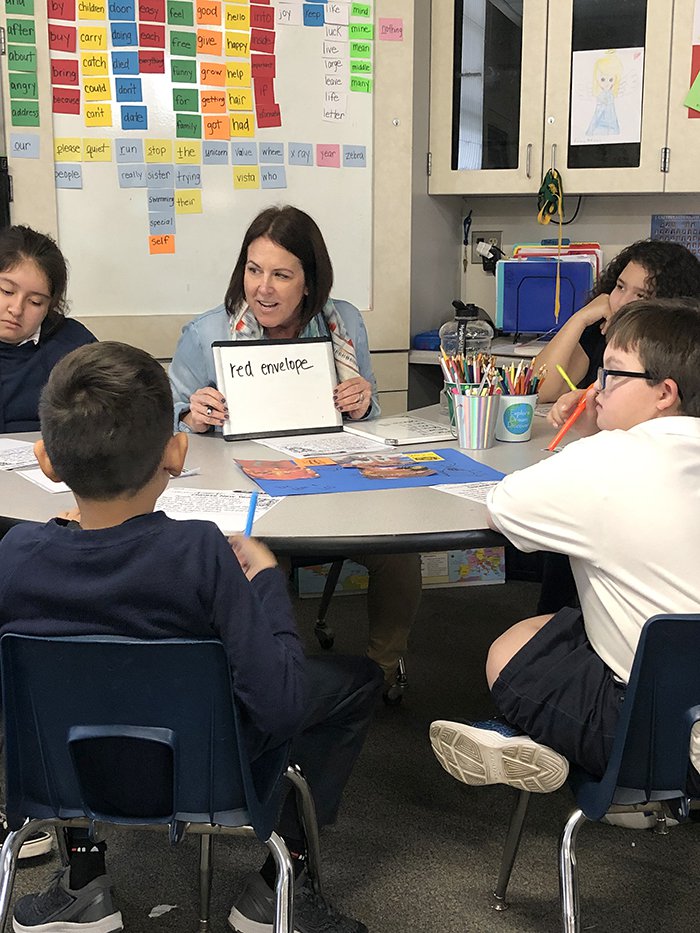Building inclusive classrooms starts with shared understanding
March 9, 2020
The following was written by Conni Campbell, Ed.D, Coordinator of Teacher Effectiveness and Preparation at the San Diego County Office of Education.
The word “inclusion,” when spoken by educators, can encompass a variety of equitable school practices. In an education context, inclusion can be defined as learning and socializing together in the same space, by design. Generally, the objectives of inclusion are that all students receive equitable and appropriate instruction and learn to appreciate each other’s diversities; that all students, because of early inclusion, will eventually be eager to participate productively together in an out-of-school context.
This is why the developers at the San Diego County Office of Education believe their new inclusive practices certificate program is a vital addition to the professional learning menu for all teachers.
School is the place where students begin to refine the roles they will eventually play as adults in their communities. If special education students are alienated during their school experiences, that transition to understanding and appreciating each other’s differences later in life is often not a smooth one.
Some of the alienation associated with being labeled “special” can be avoided when school teams make a determined effort to enhance inclusion on their campus. School teams across 14 districts in California have done just that through a new program offered by SDCOE’s Teacher Effectiveness and Preparation unit called Certificate in Inclusive School Practices.
The 12-week school team experience aims to develop collaboration and alignment of teaching practice and shared understanding about student assets and needs between general education and special education teachers who share students. The offering is built for both school site and district-level participants. Because the professional learning experience is offered in an online format, school teams do not have to travel or leave their campus to work together through this training. These school teams are led through a structured process to reimagine special education structures at their schools by 1) assessing their current practice; 2) participating in weekly online modules to learn what inclusive, effective and equitable practice looks like, and then 3) creating action plans across five areas of effective inclusive practices.
Each week of the course, participants choose goal areas, plan action steps and implement their chosen goal areas together as a team. Those goal areas can be designed on many levels, big or small, and participants have chosen to focus on such things as enhancing a culture of equity and inclusion with schoolwide practices; collaborating on the delivery of instruction and co-teaching; practicing effective interventions for students with special needs in the general education setting; and having inclusive practices as a standing agenda item at every staff meeting. Successful completion of the training culminates with a public presentation of the team goals and action steps, and results in every member earning a Certificate in Inclusive School Practices.
“I’ve always believed that all teachers should have inclusive training and this course provided it for me.”–Graduate of SDCOE’s Certificate in Inclusive School Practices program
The online modules are built by experts in the field who themselves have worked in both exclusive and inclusive settings. An important component of the professional learning experience is educating the general education teacher about characteristics of students with disabilities, and unraveling issues of equity, dispositions of effective teachers and beliefs about students with disabilities.
Graduates of the Certificate in Inclusive School Practices offered the following comments:
“I’ve always believed that all teachers should have inclusive training and this course provided it for me.”“My colleague and I are the first to co-teach in our building. It has been wonderful and we are trying to get others on board.”“Amazing course! Loved the teamwork component and action plan as the final project!”“Doing this program with the teacher that I already co-teach with has helped our co-teaching relationship and technique tremendously.”“I learned so much good content. I brought the info back to my co-teacher and instructional aide and we are working much better together.”“I thoroughly enjoyed the course. It really made me passionate about differentiating and finding resources to best support my included students.”
Principals, counselors and program specialists also take part. Including school leaders and specialists is vital to realize sustained change in practice and to keep the energy and engagement in inclusive school practices alive and at the forefront, especially because realizing true inclusion gets complex, requiring support and encouragement from leadership. School leaders who participate in the training have been the first to include more and more staff members in the experience to build capacity at their sites.
Because sustaining the effort is key to long-term success, the program now offers a new follow-up coaching component to assist in the sustainability and capacity-building aspect of this work. The model keeps the coaching close to home and accessible to all school districts in California by providing an online coaching training to one or more certificate graduates. Those teacher-leaders take on the follow-up, site-specific coaching regarding co-teaching, specific inclusive teaching strategies, Multi-Tiered System of Supports, social-emotional supports as well as behavioral supports, all content covered in the training experience.
For more information about how the Teacher Effectiveness and Preparation unit of the SDCOE can help you build capacity for inclusion, develop your Multi-Tiered System of Supports, and meet your LCAP priorities, visi
t
http://bit.ly/2HnkC1b
or call 858-292-3548.

Teacher Amy Trinidad provides reading instruction differentiated for the diverse academic levels in her classroom.


